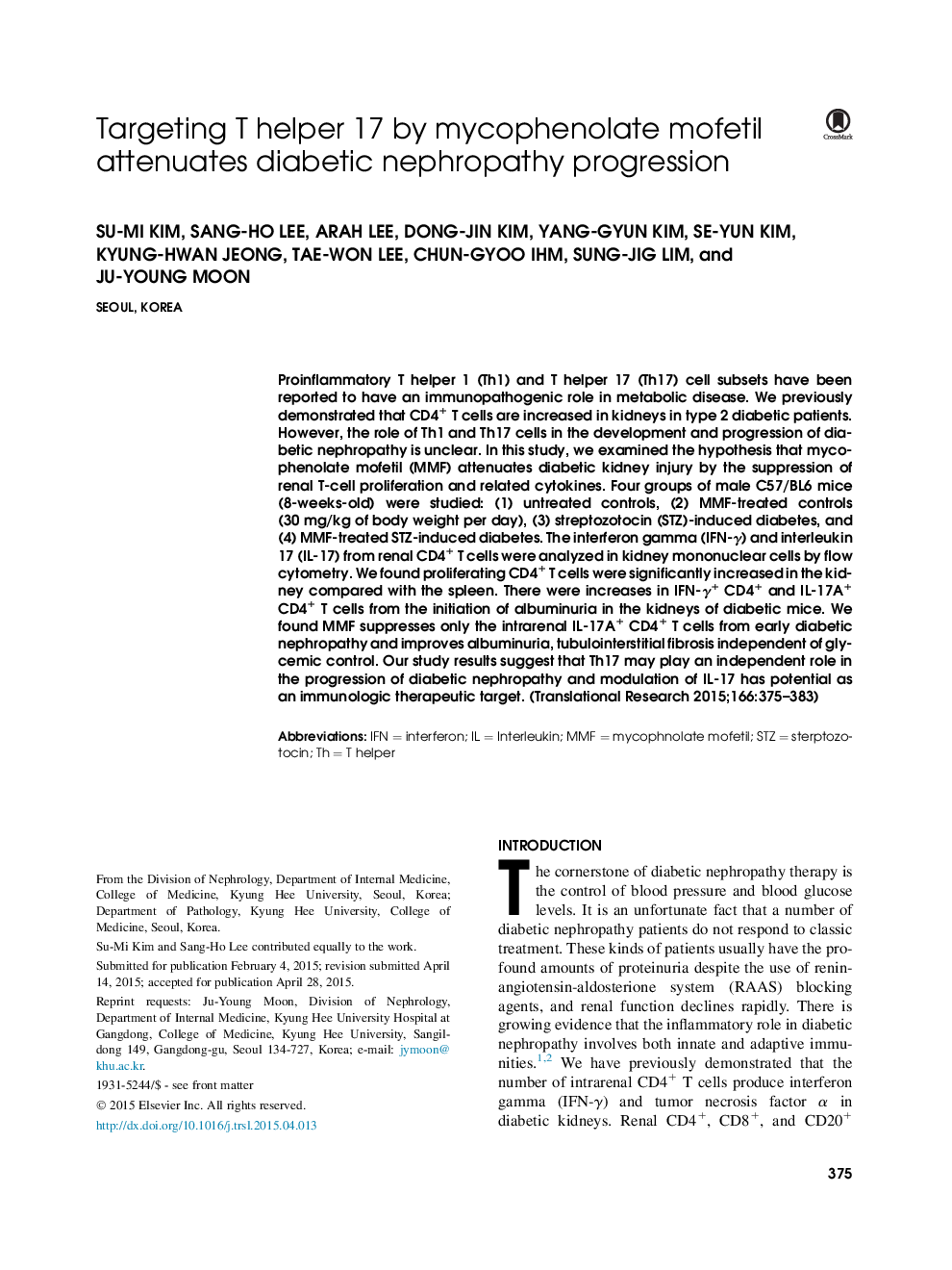| Article ID | Journal | Published Year | Pages | File Type |
|---|---|---|---|---|
| 3840064 | Translational Research | 2015 | 9 Pages |
Proinflammatory T helper 1 (Th1) and T helper 17 (Th17) cell subsets have been reported to have an immunopathogenic role in metabolic disease. We previously demonstrated that CD4+ T cells are increased in kidneys in type 2 diabetic patients. However, the role of Th1 and Th17 cells in the development and progression of diabetic nephropathy is unclear. In this study, we examined the hypothesis that mycophenolate mofetil (MMF) attenuates diabetic kidney injury by the suppression of renal T-cell proliferation and related cytokines. Four groups of male C57/BL6 mice (8-weeks-old) were studied: (1) untreated controls, (2) MMF-treated controls (30 mg/kg of body weight per day), (3) streptozotocin (STZ)-induced diabetes, and (4) MMF-treated STZ-induced diabetes. The interferon gamma (IFN-γ) and interleukin 17 (IL-17) from renal CD4+ T cells were analyzed in kidney mononuclear cells by flow cytometry. We found proliferating CD4+ T cells were significantly increased in the kidney compared with the spleen. There were increases in IFN-γ+ CD4+ and IL-17A+ CD4+ T cells from the initiation of albuminuria in the kidneys of diabetic mice. We found MMF suppresses only the intrarenal IL-17A+ CD4+ T cells from early diabetic nephropathy and improves albuminuria, tubulointerstitial fibrosis independent of glycemic control. Our study results suggest that Th17 may play an independent role in the progression of diabetic nephropathy and modulation of IL-17 has potential as an immunologic therapeutic target.
